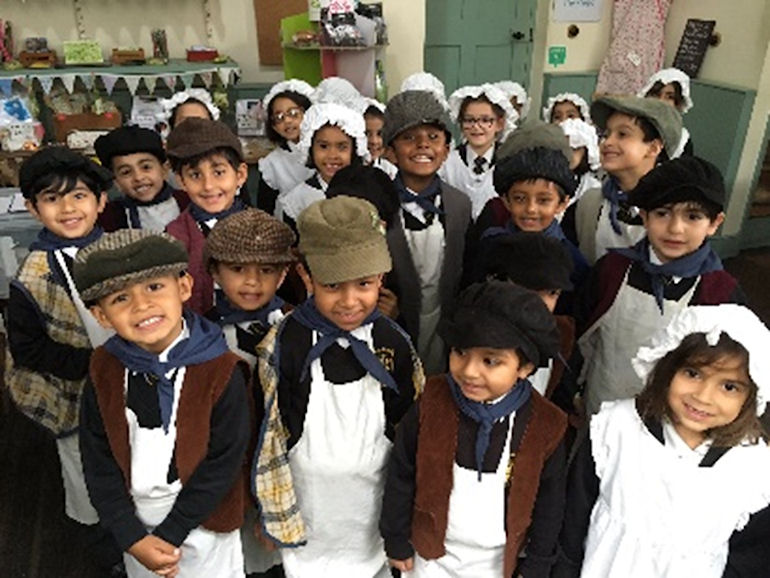History
Intent
Here at Holy Family School, our History curriculum is driven by our faith and spirituality, possibilities and environment.
We endeavour to provide all of our children with an ambitious, broad and engaging History curriculum that makes them more understanding and knowledgeable of the world around them. Whether it be local or afar, recent or ancient, we are passionate and determined to drive our children’s curiosity and excitement about the past, in a variety of different approaches. It is important that our children understand how history has moulded our own lives, and that what we do today, tomorrow and the next day, can change the lives for individuals and future generations to come.
We do not want our children just to learn about History, we also want them to experience it. Alongside valuable key knowledge, we want our children to develop their historical skills, so that they may think and communicate their ideas in a historical manner and appreciate the importance of investigating, evidencing and seeking out answers to the past. We will also make meaningful connections to our school’s Catholic ethos, incorporating aspects of Catholic Social Teaching into our History lessons.

Holy Family wants its History curriculum to provide our children with three fundamentals – knowledge, skills and experiences. In order to do this, we want:
- To help children understand a range of different eras that have come before us, from how life was during the stone age, to understanding how Great Britain defended itself during WWII.
- Our children to be able to compare these eras, understand what makes them different & unique, and how these have shaped our lives today
- Our children to be able and confident in interpreting the past, by using a range of appropriate sources such as artefacts, pictures and texts and justify their understanding.
- Children to describe and compare the social, cultural and religious aspects of the past and explain the continuity and changes that have taken place.
- Children to grasp chronology through the use of timelines, dates and describe how quick or slow changes have developed
- Children to communicate and present their understanding, using an appropriate variety of rich, technical vocabulary through a range of creative ways.
Implementation
- Carefully constructed and adapted units of work, derived from The National Curriculum will be used to deliver History, to provide our children with a broad understanding of what life was like in the past.
- Within EYFS, The Early Years Foundation Stage Statutory Framework will offer opportunities to learn about the past, through stories, religious and cultural events, and discussion. They will make links to theirs and their family’s experiences to understand how life has and will change over different periods of time.
- History is delivered in half-term blocks, which follows a chronological approach, allowing children to build on prior knowledge and develop both their historical knowledge and skills.
- Children’s understanding and progress will be monitored to assess coverage and attainment and used to understand what gaps in learning the children have.
- Resources, artefacts and specifically chosen texts accompany each History unit to support teaching, learning and further develop literacy skills.
- Learning walks, book-looks and pupil voice will be conducted to unsure children and developing and learning historical knowledge and skills.
- Extra-curricular opportunities, such as workshops, whole school projects are also organised, so that children can learn about events that are not always taught in their History units of work.
Curriculum Overview
Impact
- Children will have gained a rich and expansive understanding in the history of the world we live in.
- They will be able to communicate, with confidence, their understanding and independently seek out answers to questions they are faced with.
- Children will progress into their secondary schools with a knowledgeable and skilful foundation to further develop learning within History.
- Take away a sense of appreciation of History into their own lives.

